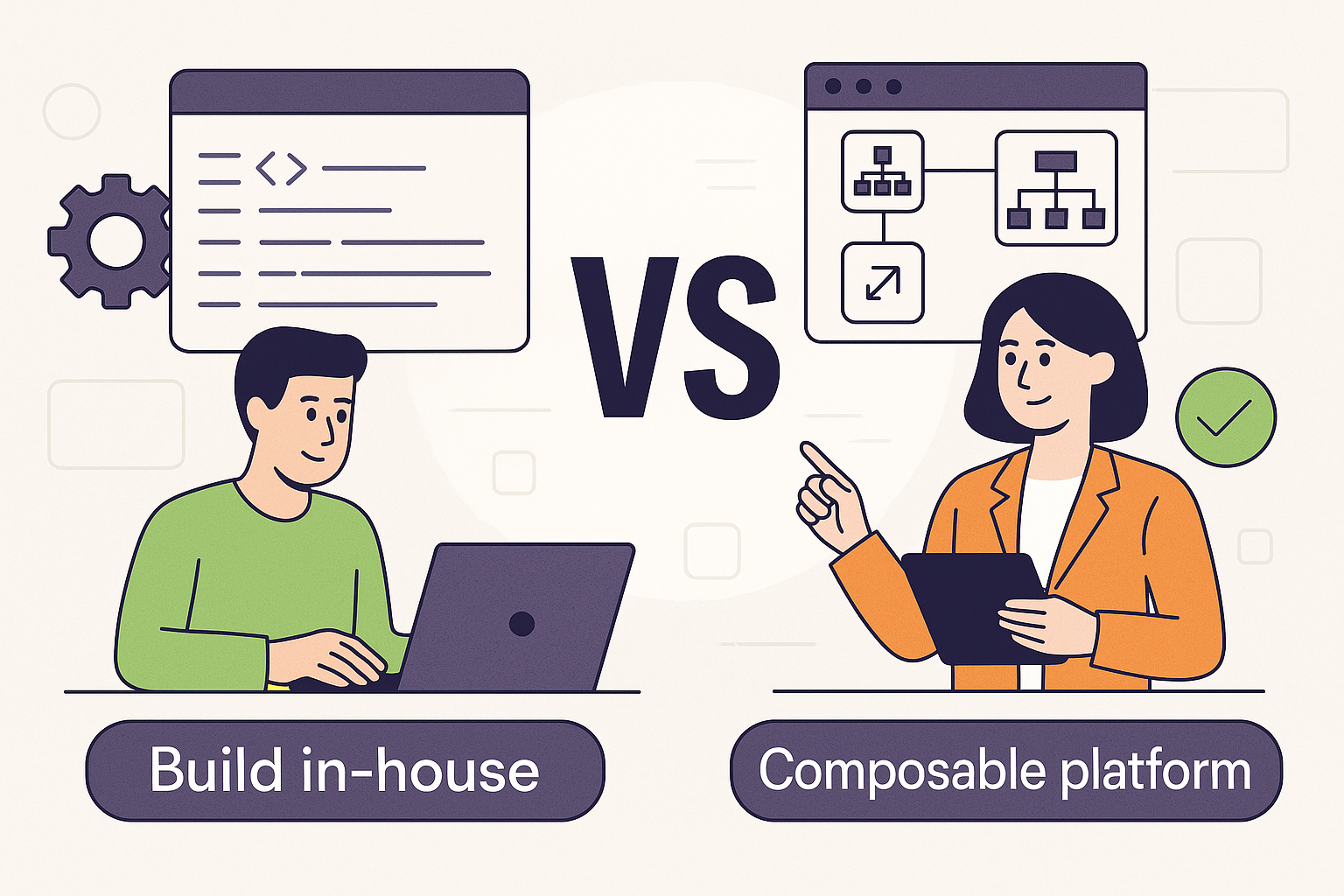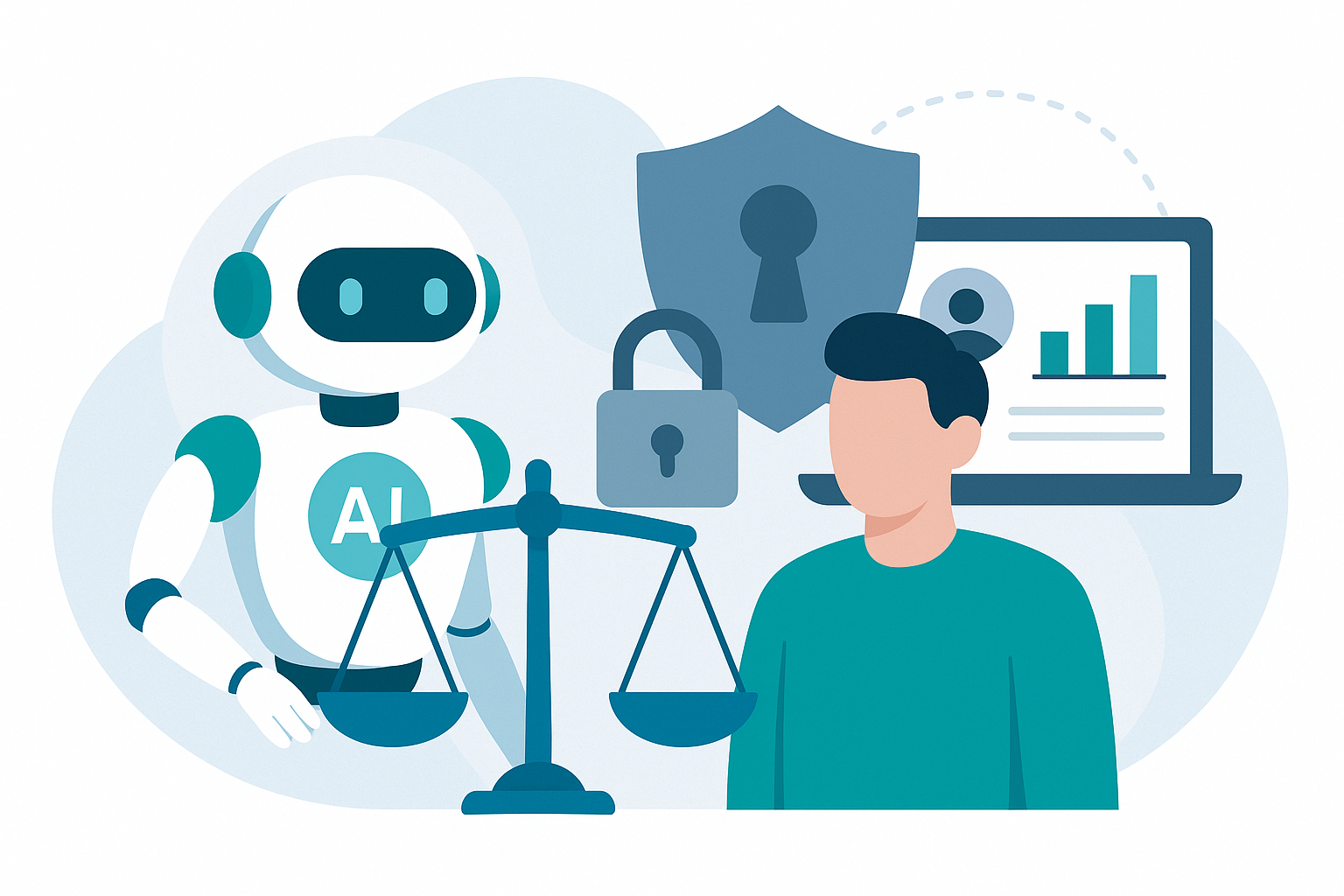In today's data-driven HR landscape, organizations collect vast amounts of employee data, from performance metrics to engagement surveys. However, the real challenge lies not in data collection but in transforming this raw data into meaningful insights. This is where AI agents come into play, serving as intelligent intermediaries that can analyze, interpret, and act upon talent data in ways that were previously impossible.
Understanding AI Agents in Talent Management
Most people think of AI as a chatbot waiting to answer questions. AI agents are different.
Chatbots = Passive. They respond when asked but don’t take action.
AI Agents = Active. They analyze data, automate workflows, and execute tasks.
AI agents use artificial intelligence and machine learning to:
- Make decisions based on their environment and programming
- Learn from experience and improve performance over time
- Interact with users, other systems, or other AI agents
- Perform complex tasks automatically
AI agents are sophisticated software programs that can autonomously process and analyze talent data, making decisions based on predefined rules and machine learning algorithms. Think of them as virtual HR analysts working 24/7 to monitor patterns and identify important trends.
Benefits of AI Agents: Efficiency and Productivity
Consider what we know about AI Agents thus far:
AI agents can automate repetitive, routine processes, allowing them to be handled efficiently without human intervention. AI agents bring numerous advantages to HR operations, fundamentally transforming how organizations manage their workforce data and processes.
- Efficiency and Productivity: AI agents can automate repetitive, routine processes, allowing them to be handled efficiently without human intervention. This includes tasks like:
- Screening initial job applications and resumes
- Scheduling interviews and sending follow-up communications
- Processing standard HR requests and documentation
- Generating routine reports and analytics
- Accuracy and Consistency: AI agents perform tasks with consistent accuracy, eliminating human error in data processing and analysis.
- 24/7 Operation: Unlike human staff, AI agents can work continuously, processing data and generating insights around the clock.
- Scalability: AI agents can easily handle increasing workloads without requiring additional resources, making them ideal for growing organizations.
- Cost-Effectiveness: By automating routine tasks, AI agents reduce operational costs and free up HR professionals to focus on strategic initiatives.
This frees up HR teams to focus on more complex, high-value tasks that require their unique skills and creativity. When HR professionals are freed from routine tasks, they can focus on strategic initiatives such as:
- Developing comprehensive employee development programs and career paths
- Creating and implementing employee engagement strategies
- Leading organizational change and culture initiatives
- Building stronger relationships with team members through personal interactions
- Designing innovative compensation and benefits packages
These human-centric activities require emotional intelligence, creative problem-solving, and interpersonal skills that AI agents cannot replicate. By combining AI efficiency with human expertise, organizations can create a more effective and balanced HR function.
The combination of AI-powered automation and human creative focus can drive significant gains in overall productivity and innovation.
The Journey from Data to Insights
The transformation of raw talent data into actionable insights through AI agents is a sophisticated process that combines data science, machine learning, and human resource expertise. This journey begins with comprehensive data collection from multiple talent systems and sources, where AI agents gather everything from performance metrics to employee feedback. The data then undergoes rigorous preprocessing and cleaning to ensure accuracy and consistency. Next, AI agents employ advanced analytics to identify patterns, correlations, and trends that might be invisible to human observers. These insights are then contextualized within the organization's specific environment, considering factors like industry benchmarks, historical performance, and business objectives. Finally, the AI agents translate these analyzed insights into practical, actionable recommendations that talent professionals can implement to improve workforce management, employee engagement, and organizational performance. The journey from HR data to actionable insights using AI agents involves several key stages:
1. Data Collection and Preprocessing
AI agents begin by gathering data from various talent systems - attendance records, performance reviews, salary information, and employee feedback. They clean and standardize this data, ensuring it's in a format that can be effectively analyzed.
2. Pattern Recognition
Using machine learning algorithms, AI agents identify patterns and correlations in the data. For example, they might notice that employee turnover increases during specific seasons or that certain departments consistently show higher engagement scores.
3. Contextual Analysis
What sets modern AI agents apart is their ability to consider context. They don't just look at numbers in isolation but consider multiple factors simultaneously. For instance, when analyzing performance metrics, they might factor in team dynamics, workload distribution, and recent organizational changes.
4. Decision Making and Alerts
Based on their analysis, AI agents make decisions about when and how to surface insights. Here's how they might "think" through a situation:
- They detect that team productivity has dropped by 15%
- They cross-reference this with increased overtime hours and decreased engagement scores
- They identify this pattern as a potential burnout risk
- They automatically generate an alert for HR managers with specific recommendations
This systematic approach ensures that organizations can make data-driven decisions while maintaining the human touch essential to effective HR management.
Real-World Applications
1. Predictive Analytics
AI agents can forecast future trends based on historical data. For example, they might predict:
- Likely turnover rates in specific departments
- Future skill gaps based on business growth projections
- Potential leadership candidates based on performance trajectories
2. Automated Reporting
Instead of static monthly reports, AI agents can generate dynamic insights when specific conditions are met:
- Sudden changes in team performance metrics
- Emerging patterns in employee feedback
- Deviations from expected attendance or productivity patterns
3. Proactive Recommendations
AI agents don't just identify problems; they can suggest solutions based on successful past interventions:
- Recommending specific training programs for skill gaps
- Suggesting team restructuring to optimize performance
- Proposing retention strategies for high-risk employees
Implementation Considerations
While AI agents offer powerful capabilities, successful implementation requires:
- Clear definition of objectives and desired outcomes
- Quality data inputs and regular system maintenance
- Integration with existing HR workflows and systems
- Proper training for HR teams to effectively use the insights
The Future of AI-Driven Talent Insights
As AI technology continues to evolve, we can expect even more sophisticated analysis capabilities, including:
- Natural language processing for better understanding of employee feedback
- Advanced sentiment analysis for gauging organizational mood
- Real-time performance optimization recommendations
The journey from talent data to insights via AI agents represents a fundamental shift in how organizations understand and manage their workforce. This transformative shift is particularly evident in several key areas:
Data-Driven Culture Development
By leveraging AI agents, organizations can foster a culture where decisions are backed by concrete data rather than intuition alone. This approach helps eliminate biases and ensures more objective decision-making in areas like hiring, promotions, and resource allocation.
Proactive Workforce Management
AI agents enable talent teams to move from reactive to proactive management strategies. Instead of responding to issues after they arise, organizations can anticipate challenges and opportunities, implementing preventive measures before problems escalate.
Enhanced Employee Experience
Through sophisticated data analysis, AI agents help organizations better understand employee needs and preferences. This insight allows talent management teams to tailor their initiatives and programs to maximize employee satisfaction and engagement while improving retention rates.
Strategic Resource Optimization
By providing deep insights into workforce dynamics, AI agents help organizations optimize their human resource allocation. This includes better matching of skills to projects, more effective training programs, and improved succession planning.
By demystifying this process, talent professionals can better leverage these tools to make more informed, data-driven decisions that benefit both the organization and its employees. When talent professionals thoroughly understand leveraging AI agents, they can more confidently utilize AI tools to enhance various aspects of workforce management, from talent acquisition to employee development and retention strategies.
%20(1).svg)







